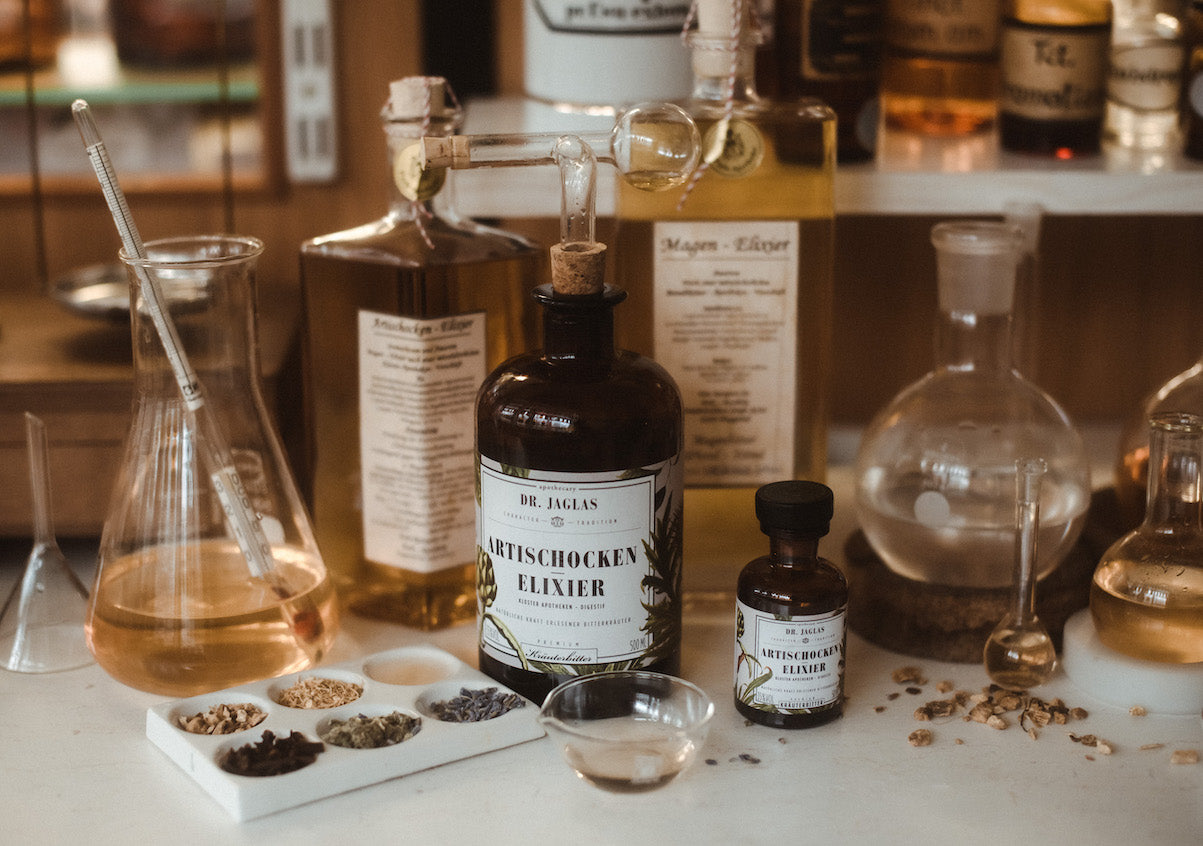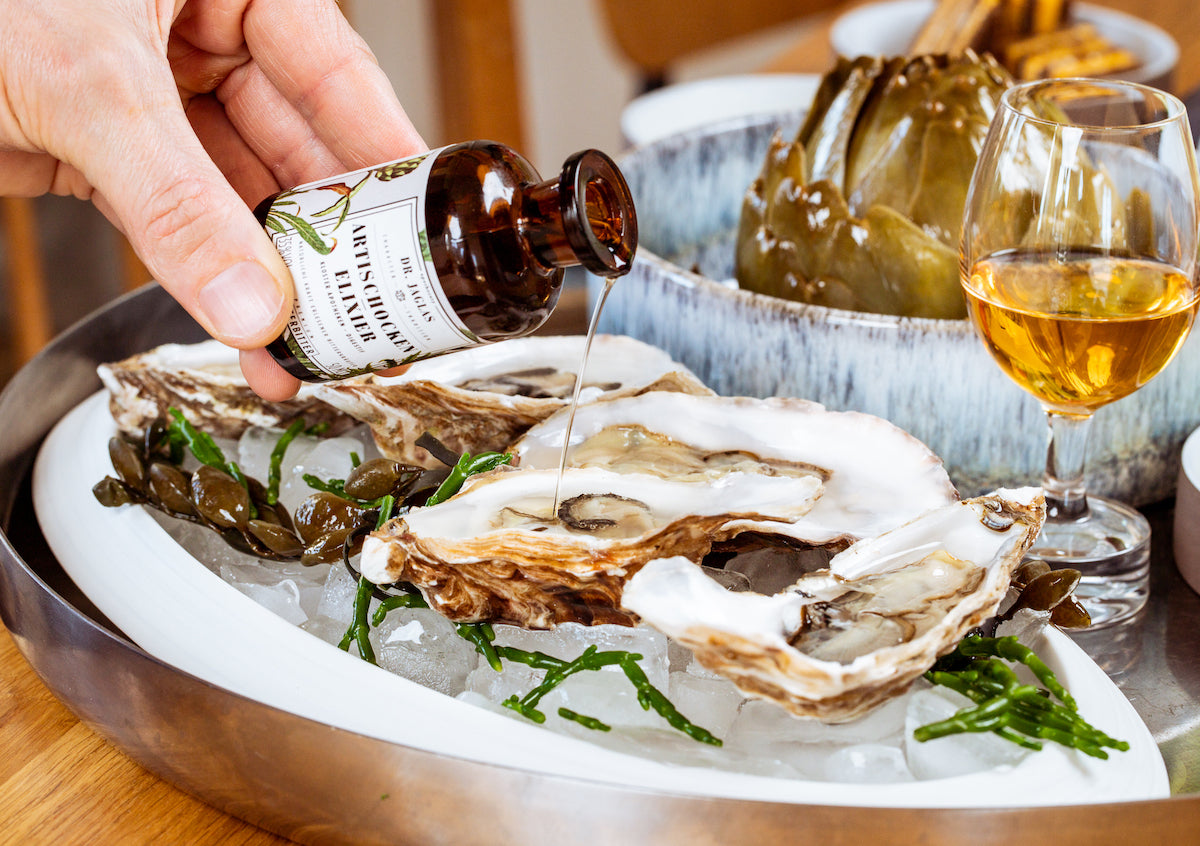Bitter substances: beneficial and valuable
Hildegard von Bingen already knew how important and beneficial bitter substances are for our bodies. The Benedictine nun, abbess and famous natural and medicinal scholar lived between 1098 and 1179 and wrote several works. In "Physica" she describes the healing powers of nature , and in "Causae et curae" she describes the origin and treatment of diseases. Hildegard von Bingen brought together the knowledge of plants and human diseases at the time with folk medicine. Her findings in the field of herbal medicine are still of inestimable value today.
So does the thesis: bitter is healthy. But why is that actually the case? What special properties do the bitter substances have and where are they found?
Bitter substances: definition and occurrence
- Chemically speaking, bitter substances are compounds that have a bitter taste due to the activation of so-called G protein-coupled receptors. They are secondary plant substances and are found in many foods. Some examples:
- Chicory, endive, rocket
- Brussels sprouts
- Grapefruit and pomelo
- Black and green tea
- artichokes
- Walnuts
- Chard and spinach
Mother Nature has arranged this very cleverly, because the
bitter substances have always taken on an important task: the bitter taste is intended to protect the respective plants from predators. Many animals don't like the taste and prefer to turn to other food plants. However, it is not popular with everyone, so the
bitter substances have simply been bred out of some vegetables and salads over time. For example, chicory, endive, radicchio and rocket taste only slightly bitter today.
This is exactly what turned out to be a mistake from a health perspective, because bitter substances not only protect the plants from damage, they also have great benefits for our health and well-being in several ways.
That is why it is now even recommended to take special nutritional supplements or medical preparations. These then contain, among other things , bitter herbs and bitter concentrates . However, everyone should decide this individually and, if possible, after consulting a doctor. Simply consuming bitter foods and drinks can often be enough to supply the body with the important bitter substances , because there are bitter herbs and plants that still contain the bitter substances naturally.
Bitter substances and their effects
The term bitter substances basically refers to all bitter substances that either come directly from nature or are produced synthetically. They can therefore have very different compositions. If they come into contact with the tongue when consumed, we usually feel the first effect ourselves. The bitter substances stimulate the production of saliva, but at the same time the formation of stomach acid, bile and pancreatic secretion is also stimulated. Increased intestinal movements then contribute to better and faster digestion. The intestinal flora is also supported by the bitter substances , which means that the intestinal walls remain supple. And since the majority of our immune system is located in the intestine, it can also be strengthened and stabilized in this way. The improved production of bile also makes fat digestion easier, which is perceived as beneficial after a heavy meal, for example, and can even help you lose weight, especially since bitter substances can also stop cravings for sweets. For example, if you drink herbal bitters after a sumptuous meal, you often no longer have any desire for a sweet dessert. The “bitter” flavor is the opposite of the sweet taste. Hildegard von Bingen was right back then, and to this day there are good reasons for regularly consuming bitter substances.
The positive influence on the intestines is so great that bitter substances are often recommended to relieve the symptoms of Crohn's disease.
Bitter herbs in herbal bitters from Dr. Jaglas
Of course, not all herbs we find in nature are
bitter herbs . Strictly speaking, there are only a few herbs that contain
bitter substances . But that's exactly what's in the good
herbal bitters from Dr. Jaglas , which we offer you in several delicious variations. One of these valuable herbs is angelica, also known as angelica root. Angelica root has an antimicrobial effect and can help with bloating and flatulence as well as stomach and intestinal cramps. Or gentian: The bitter substances it contains counteract inflammation, increase the production of gastric juices and bile and can strengthen the body's defenses. The centaury herb has similar positive properties, while the citrus root is traditionally used to treat loss of appetite, upset stomachs and to improve digestion. The series could be continued even longer, and it is clear that bitter herbs are an integral part of natural medicine.
Which herbal bitters is your favorite?
Our
Artichoke Elixir contains all the power of the artichoke, which in turn contains bitter substances such as cynaropicrin: a substance known to relieve flatulence and reduce feelings of fullness. In addition, the
herbal bitters are enriched with centaury, gentian and citrus root, among others. The fine recipe is rounded off by, for example, ginger, lavender and camphor. Or do you prefer
Golfer's Ginseng Elixir with the famous ginseng root and many bitter herbs? Enjoy the full-bodied taste pure or with ice cubes: an experience for all the senses! Our
Maca Ginseng Elixir combines the ginseng root with the valuable
maca root and more than 30 other bitter herbs, roots and flowers. You will love the bittersweet note with the long finish and the subtle nutty nuance, and your gastrointestinal tract will be happy too!











